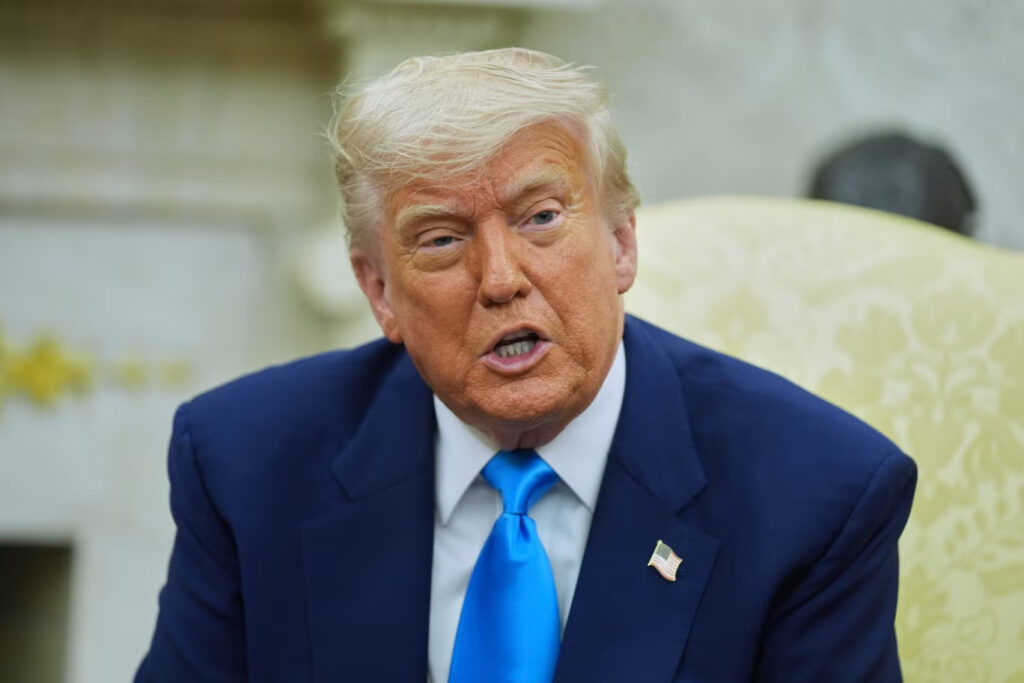In a significant shift in the United Kingdom’s defence and national security policy, Prime Minister Keir Starmer has announced that the UK will commit 5 percent of its Gross Domestic Product (GDP) to national security and defence by the year 2035.
The bold pledge was made as Starmer signed a fresh NATO agreement ahead of his participation in the alliance’s summit in The Hague. The commitment marks a historic move, especially as pressure mounts from international allies, including President Donald Trump, who has “insisted that Europe needs to stop relying on the US for defence spending.”

This new target doubles down on an earlier ambition outlined by Starmer in the previous month’s strategic defence review, which aimed for a 3 percent defence expenditure. If realised, the 5 percent commitment would become the UK’s highest proportional spend on defence since the end of the Second World War.
Starmer explained the rationale behind the decision, stressing the importance of proactive measures amid a turbulent global environment.
“We must navigate this era of radical uncertainty with agility, speed, and a clear-eyed sense of the national interest to deliver security for working people and keep them safe.
“That’s why I have made the commitment to spend 5 percent of GDP on national security. This is an opportunity to deepen our commitment to NATO and drive greater investment in the nation’s wider security and resilience.”
Prime Minister Keir Starmer
UK’s NATO Deal Aims For Greater Resilience
The 5 percent allocation will be structured as 3.5 percent for core defence and 1.5 percent for broader national resilience, pending agreement at the NATO summit. The strategy seeks to address not only conventional threats, such as increasing aggression from Russia in Ukraine, but also new forms of warfare and security risks.
Despite this bold vision, Downing Street has continued to treat the 3 percent defence target as merely an “ambition,” raising doubts about the feasibility of reaching 5 percent within the proposed timeframe. Nonetheless, the UK’s projections indicate that, with national security costs included, the country could hit 4.1 percent of GDP by 2027.
While the UK has embraced this expanded defence agenda, not all NATO members are on board. Spain, which currently spends only 1.7 percent of its GDP on defence, has already negotiated an exemption from the agreement, raising questions about collective burden-sharing within the alliance.
The National Security Strategy, also unveiled on Tuesday, serves as the government’s roadmap for aligning economic strength with military preparedness. The strategy consolidates various security initiatives launched since the general election and prioritises the “relentless pursuit of British interests.”
This approach includes enhancing the UK’s stance in science, education, trade, and frontier technologies — areas deemed crucial to long-term resilience. The government’s Industrial Strategy outlines an £86 billion investment in research and development to underpin the UK’s future economic and military competitiveness.
Starmer emphasized that the national security strategy is not only about defence but also about economic empowerment. “After all, economic security is national security, and through this strategy we will bring the whole of society with us, creating jobs, growth, and wages for working people – guided by my plan for change.”
Meanwhile, NATO plans to reassess the spending trajectories and the balance between defence and resilience in 2029, as it undertakes its next capability review.
The political response to the announcement has been largely supportive, though concerns remain about implementation speed. Helen Maguire, the Liberal Democrat defence spokesperson, welcomed the new commitment, stating: “It’s absolutely right that the government is signing up to this new spending target, especially after the damage done to our defence by the Conservatives.”

“It’s essential, though, that the government accelerates its snail’s pace timeline to reach this higher spending target, to properly safeguard our national security. Labour must finally convene cross-party talks to agree a pathway for this commitment.”
Helen Maguire
As the UK charts a new course in defence and security, all eyes will be on the government’s ability to balance ambition with delivery, and on NATO’s evolving role in a complex global security landscape.
READ ALSO: GES Moves To Resolve Posted Teachers’ Salary Concerns























